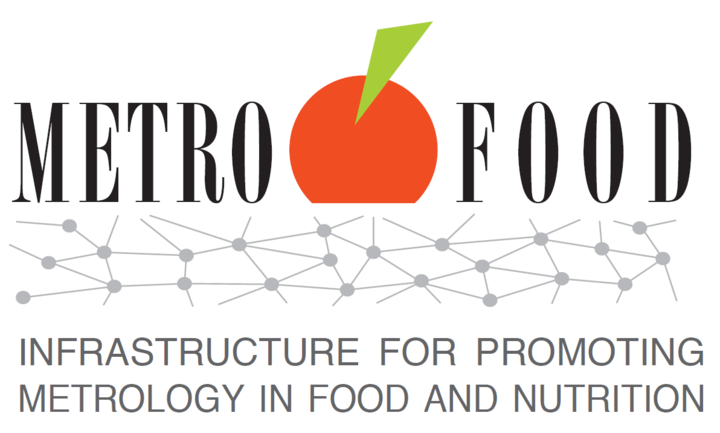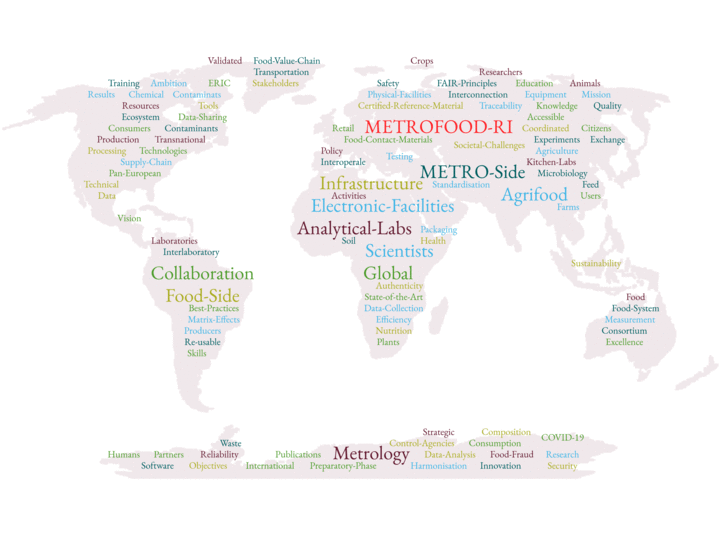
The Research Infrastructure METROFOOD-RI entered the Preparatory Phase on December 01, 2019.
METROFOOD-RI is a European Research Infrastructure that aims to integrate the principles of metrology (science of measurement) in food analysis on a pan-European scale. It is part of the Roadmap 2018 of the European Strategy Forum on Research Infrastructures (ESFRI).
The underlying European project consortium comprises 48 institutions from 18 countries operating in the fields of food analysis, food technology, agriculture, information technology and risk assessment, and is coordinated by Dr. Claudia Zoani from the Italian partner ENEA (Agenzia Nazionale per le Nuove Tecnologie, l'Energia e lo Sviluppo economico sostenibile; ENEA; engl. National Agency for New Technologies, Energy and Sustainable Development). Germany is represented in this consortium by the TUM-Chair of Analytical Food Chemistry.
Following a successful feasibility study (Early Phase, 2017), METROFOOD-RI entered the Preparatory Phase on December 1, 2019. This phase will continue through 2021 and takes preparatory steps to fully operationalize METROFOOD-RI by 2024 after a final implementation phase.
At that time, the Research Infrastructure will provide a range of services such as method standardization procedures, production of reference materials, laboratory intercomparison studies, data management and processing services, to both government agencies and private customers. The expected lifetime of the infrastructure has been estimated by the EU at two decades.
The primary objective of METROFOOD-RI is to improve food quality and safety through metrology in food and nutrition in the long term and to drive pan-European cooperation, consolidation and successive global networking.
METROFOOD-RI's future portfolio will focus on high quality food and nutrition metrology services covering a cross-section of highly interdisciplinary and interrelated areas along the entire food value chain including agri-food, sustainable development, food safety, quality, traceability and authenticity, environmental safety and human health.
Prospective scientific offerings of METROFOOD-RI will address multiple users and stakeholders, such as
- Public and private laboratories and groups involved in food data collection and measurement reliability research activities or basic food and nutrition research;
- Food business operators and producer associations;
- Policy makers, food inspection and control agencies;
- Consumers/consumer associations and citizens.
In addition to the improvement of scientific cooperation and the promotion of interactive activities among different actors in the food sector, a further cornerstone of METROFOOD-RI is the establishment of a shared data, information and knowledge base. The provision of data, information and metrological tools is intended to improve the quality and reliability of measurement results in the field of metrology as well as to promote an interdisciplinary knowledge exchange.
Along with the FAIR principles (Findable, Accessible, Interoperable, and Re-usable) in data management, the principles for Responsible Research Innovation (RRI) are also being applied within METROFOOD-RI.
In the framework of the METROFOOD-RI project, the TUM-Chair of Analytical Food Chemistry is the lead partner responsible for working on the following tasks:
- Work package 4: Policy set up and statute development: Task T4.6: Development of an evaluation strategy to assess the scientific performance of METROFOOD-RI
- Work package 10: Research & innovation agenda: Task T10.2: Elaboration of the strategic research and innovation agenda for METROFOOD-RI
- Work package 11: Positioning in the Research Ecosystem: Task T11.4: Globalization – Establishment of cooperative relationships with national and international organizations
- Work package 12: Socio-economic benefits: Task T12.3: Impact evaluation and stakeholder communication
